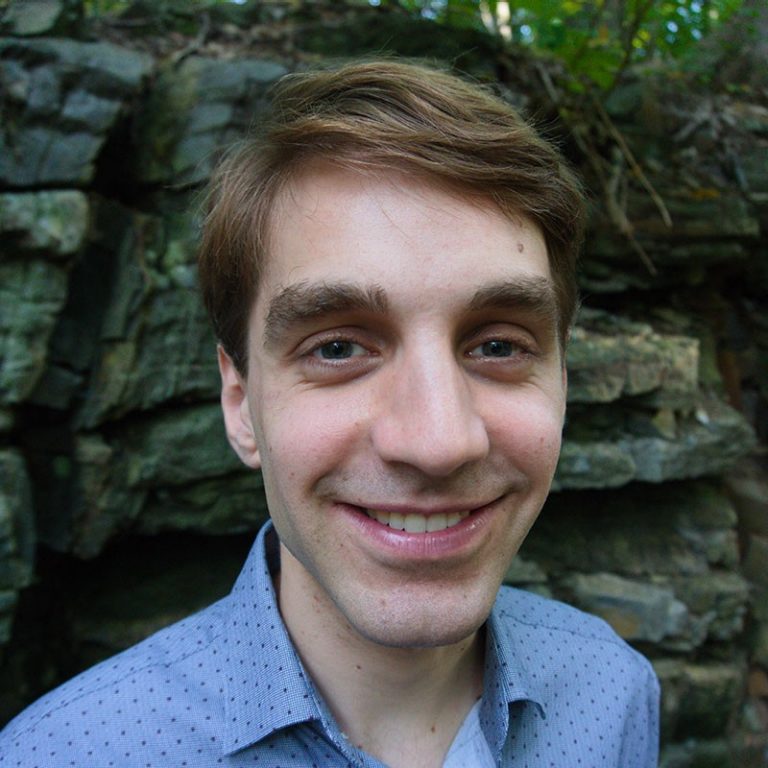Bennett Dobni
Bachelor in Fine Arts
Major Electroacoustic Studies
“My unique learning path was carved and traversed at Concordia.”
Electroacoustics grad Bennett Dobni credits transdisciplinary education for his career success
Born and raised in Saskatoon, Sask., Bennett Dobni, BFA (electroacoustic studies) 20, discovered a whole new world when he arrived in Montreal.
“I was a touring musician who wasn’t academically engaged in high school,” Dobni says. “I came to Montreal, became quite involved in the local music scene, and was hired near the end of my first year of university to tour the United States supporting Crystal Castles. I had to drop out to take the job.”
Upon his return, Dobni was ready to commit to academic life. “A couple of professors believed in me, thought I was worth a second chance so I re-enrolled,” he says. “I eventually graduated with honours after an incredibly stimulating and personalized academic path. My unique learning path was carved and traversed at Concordia.”
Today, Dobni is director of prototypes and instrumentation at the internationally renowned Lambert & Fils design studio where he works “with the design team to engineer physical prototypes throughout the product design process.”
What was the best part about your program?
I really loved that the Electroacoustic Studies program was extremely flexible, due largely to the small number of students enrolled in it. We had direct access to all the professors who geared the content in a way that was most important to us, and this became more and more relevant as I progressed through university. They carved something out for each individual student and that was the single most beneficial thing about the program.
What were some of the highlights of your Concordia experience?
As I started becoming more specific about what I wanted to do, I began working on producing my own designs in the metal shop. It was outside of the classroom and was community-forming. There were students from different departments working on design, on visual arts. The metal shop offered opportunities for different disciplines to interact within the facility.
I worked on inventions and instrument designs at the metal shop. Brian Cooper [technician at Concordia’s Core Technical Centre Metal Shop] became one of the biggest influences in my career. He wasn’t a formal teacher of mine, but he was a mentor to me.
I also liked that I could enrol in a variety of different courses outside my discipline — mechanical engineering, intermedia cyberarts and computer programming were of utmost interest. The career I have now has little to do with electroacoustics but came out of the transdisciplinary education I got at Concordia.
Any internships or grants?
I did an internship at a music technology company during my last semester and I was the recipient of a Concordia Undergraduate Student Research Award in 2017-18 for research on designing new audio technology systems. This award enabled me to extensively focus on my work and hone my skills.
Any advice for current students?
Every project you work on should be taken seriously as if it is going into your career portfolio. A major contributor to my career success has been my ability to present my work in a strong portfolio that features many projects from my undergrad.
Getting involved in extra-curricular activities is also really important. Join student groups. I was the academic coordinator for the Electronic Music Association of Concordia, which threw techno parties. We even threw a techno party on the roof of the Engineering, Computer Science and Visual Arts Complex (EV)! University is such a short period of time and the more you meet people, the better. They will become your peers out there in the working world.
